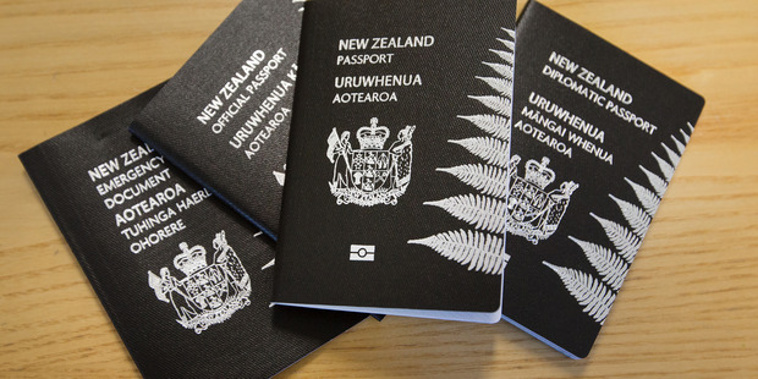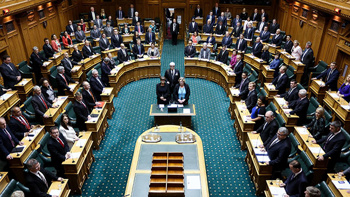
New Zealand is moving up the list of the Henley Passport Index as Japan has slipped from first spot for the first time in five years and been bumped down into third place, according to the latest ranking.
Singapore is now the most powerful passport in the world, with its citizens able to visit 192 travel destinations out of 227 around the world visa-free.
New Zealand has moved up the ranks from seventh at the start of the year to fifth equal, with Kiwi passport holders able to get into 187 countries visa-free.
However, this country, which is trying to rebuild its battered international tourism sector, is not so open. It is well down the list when it comes to ease of entry to visitors from other countries.
Henley & Partners has conducted exclusive new research into the relationship between a country’s openness to foreigners — how many nations it allows to cross its borders visa-free — and its own citizens’ travel freedom, gauged using the Passport Index.
The new openness index ranks all 199 countries worldwide according to the number of nationalities they permit entry to without a prior visa and — New Zealand ranks 67th.
New Zealand and Japan make it into the Top 5 countries with the biggest difference between the travel freedom they enjoy versus the visa-free access they provide to other nationalities. The Top 20 “most open” countries are all small island nations or African states, except for Cambodia.
The 12 completely open countries that offer visa-free or visa-on-arrival entry to all 198 passports in the world are Burundi, Comoro Islands, Djibouti, Guinea-Bissau, Maldives, Micronesia, Mozambique, Rwanda, Samoa, Seychelles, Timor-Leste and Tuvalu.
The United States is not so open.
While American passport holders can access 184 (out of 227) destinations visa-free, the US itself only allows 44 other nationalities to pass through its borders visa-free, putting it way down the openness index in 78th place (compared to eighth place on the Henley Passport Index). When comparing the two rankings, the USA’s disparity in access versus its openness is the second biggest, narrowly trailing only Australia.
At the bottom of the Henley Openness Index, four countries score zero, permitting no visa-free access for any passport: namely, Afghanistan, North Korea, Papua New Guinea, and Turkmenistan. They are followed by five countries that provide visa-free access to fewer than five other nationalities: namely, Libya, Bhutan, Eritrea, Equatorial Guinea and India.
In the passport index Germany, Italy, and Spain all move up into second place with visa-free access to 190 destinations, and Japanese passport holders join those of six other nations — Austria, Finland, France, Luxembourg, South Korea, and Sweden — in third place with access to 189 destinations without a prior visa. Britain appears to have finally turned the corner after a six-year decline, jumping up two places on the latest ranking to fourth place — a position it last held in 2017.
The top 10 passports for getting places
1 Singapore
2 Germany, Italy, Spain
3 Austria, Finland, France, Japan, Luxembourg, South Korea, Sweden
4 Denmark, Ireland, Netherlands, United Kingdom
5 Belgium, Czech Republic, Malta, New Zealand, Norway, Portugal, Switzerland
6 Australia, Hungary, Poland
7 Canada, Greece
8 Lithuania, United States
9 Latvia, Slovakia, Slovenia
10 Estonia, Iceland
The US continues its now decade-long slide down the index, plummeting a further two places to 8th spot with access to just 184 destinations visa-free. Both Britain and the US jointly held first place on the index nearly 10 years ago in 2014 but have been on a downward trajectory ever since. Afghanistan remains entrenched at the bottom of the passport, with a visa-free access score of just 27, followed by Iraq (score of 29), and Syria (score of 30) — the three weakest passports in the world.
The general trend over the history of the 18-year-old ranking has been towards greater travel freedom, with the average number of destinations travellers are able to access visa-free nearly doubling from 58 in 2006 to 109 in 2023.
However, the global mobility gap between those at the top and bottom of the index is now wider than it has ever been, with top-ranked Singapore able to access 165 more destinations visa-free than Afghanistan.
Chairman of Henley & Partners Christian Kaelin (and the inventor of the passport index concept), says only eight countries worldwide have less visa-free access today than they did a decade ago while others have been more successful in securing greater travel freedom for their citizens.
“The United Arab Emirates has added an impressive 107 destinations to its visa-free score since 2013, resulting in a massive leap of 44 places in the ranking over the past 10 years from 56th to 12th position, he said.
Of the countries sitting in the Top 10, the US has seen the smallest increase in its score on the index over the past decade, securing visa-free access to just 12 additional destinations between 2013 and 2023. Singapore, by comparison, has increased its score by 25, pushing it five places up the ranking over the past 10 years to the number one spot.
Henley & Partners advises wealthy individuals on residence and citizenship by investment.
Take your Radio, Podcasts and Music with you









